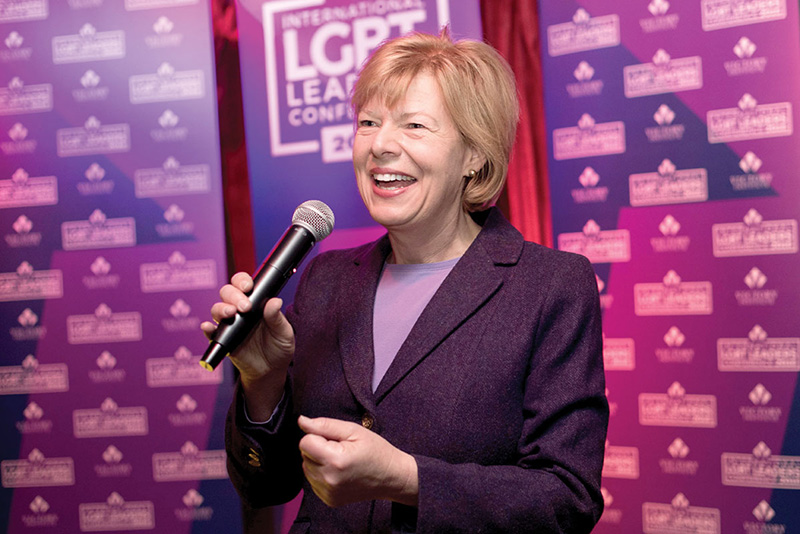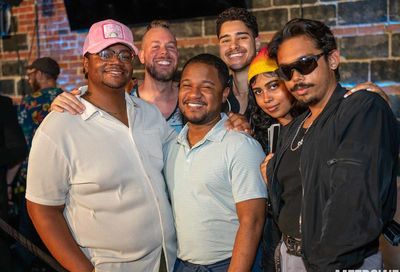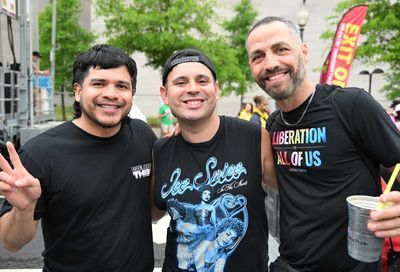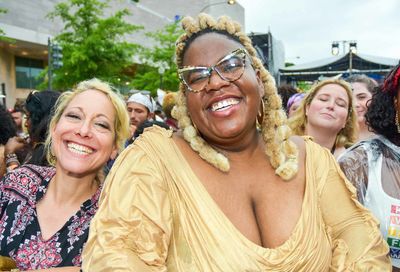Questions on Crime
D.C. City Council committee holds hate-crime hearing, with councilmembers and activists raising several issues with police
Members of the D.C. City Council chastised the Metropolitan Police Department for a perceived failure to effectively engage local community members on initiatives aimed at combating hate crimes committed against the LGBT community during a June 29 hearing of the Committee on the Judiciary.
The councilmembers also encouraged the MPD to provide written documentation and plans of action to make it easier to keep track of progress made by the department in responding to crimes that may have a bias motivation.
Despite a June 21 announcement of a task force spearheaded by the Anti-Defamation League (ADL) to examine and assess MPD’s outreach efforts to different District communities and its investigation and reporting of hate crimes, Councilmember Jim Graham (D-Ward 1) said that although he was pleased that the task force had been created, he was concerned that the task force needed to include local community activists such as those from the DC Trans Coalition (DCTC), Gay and Lesbian Activists Alliance (GLAA) and Gays and Lesbians Opposing Violence (GLOV).
At present, the task force is comprised of representatives from the ADL, the Human Rights Campaign (HRC), the National Center for Transgender Equality (NCTE), the Leadership Conference on Civil and Human Rights and two academic experts on hate crimes and violence. As part of the first phase of the task force’s investigation, focusing specifically on police outreach and response to the LGBT community, the task force will interview local LGBT community members and stakeholders to gauge the effectiveness of MPD’s response. But no local groups currently have a seat on the ADL task force, something Graham and Council Chairman Phil Mendelson (D) said they felt was important.
”I share Chairman Mendelson’s concerns about the inclusion of local groups in whatever task forces are occurring,” Graham said to MPD Chief Cathy Lanier after her testimony before the committee. ”I’d like you to assure us that the membership will be expanded to local groups and organizations.”
In response, Lanier said that she had expressed the concerns of the local groups to the ADL, and that the ADL had ”every intention, from the very beginning” of seeking input from those groups. She did not specifically commit to expanding the membership of the task force.
The hearing focused primarily on four issues that were repeatedly raised by activists, such as Jason Terry of DCTC, A.J. Singletary of GLOV and Richard J. Rosendall of GLAA: addressing biased policing; expanding cultural sensitivity training efforts for MPD personnel; better crime tracking and communication between Gay and Lesbian Liaison Unit (GLLU) affiliate officers and the central GLLU office, a part of the department’s Special Liaison Division; and resolving open homicide investigations.
”We’re all basically getting on the same page,” Terry told Metro Weekly regarding testimony from the groups. Various community groups, he said, had been working together to present a singular, coordinated message regarding what is expected from MPD.
Some witnesses also testified that even though police, the mayor’s office and community groups have formed various task forces to address these issues, they didn’t feel police communication or outreach efforts were sufficient. For example, some testified that police involved in special task forces, such as the department’s Critical Incident Team – which brings together police, representatives from the mayor’s office and community activists monthly to review crimes – had arrived late to meetings or, in some cases, been absent.
”MPD’s Critical Incident Team must be better organized with stronger leadership,” Holly Goldman of GLOV said in her testimony. ”The current roles of the MPD, the mayor’s office and community groups are confusing at best and dysfunctional at worst. GLOV has actively participated in the Critical Incident Team and would like to see MPD take stronger, proactive leadership with the group.”
In addition, Terry testified that the Critical Incident Team had received briefings about a proposed outreach plan to address some of its member groups’ concerns, but that such a plan has never been put into writing, nor has MPD offered a timeline for action. When Capt. Edward Delgado, head of the Special Liaison Division, testified, he told Mendelson that the department was working on a draft plan, but said nothing was concrete, because he was waiting for input from LGBT community groups.
”That’s not working for me,” Mendelson said after questioning Delgado for several minutes about the lack of a written plan. ”What’s missing is a plan that would be something like, just by analogy, the summer crime plans in each District that commanders are required to develop. And having a written plan like that, I think the groups are expecting that to come from you, Captain. … There would be a document like that, to which then there could be a reaction and a discussion.”
Later, after the hearing had adjourned, Delgado approached Terry to discuss drafting a plan.
In her testimony, Goldman recommended that the MPD develop a professional training program for its Special Liaison Division, including the GLLU. She also said MPD must revise the overall sensitivity training provided to all officers, saying that the current training is not sufficiently comprehensive.
Councilmember David Catania (I-At Large) wanted a bigger, broader picture of the department’s efforts to respond to concerns about potentially biased policing.
Catania asked Lanier how MPD might ”indoctrinate an entire police department into certain sensitivities,” referring to department directives that require officers to respond appropriately to crimes involving victims who are members of the LGBT community.
”Process isn’t a solution,” Catania said. ”People think if you have a box, it becomes a solution and you check it. Boom. It really isn’t. … You don’t know it’s a solution unless you test it, audit it.”
Lanier responded by saying the department requires every officer to complete online sensitivity training and also carries out training at daily roll call, where officers will be drilled on how to respond to a potential scenario, such as dealing with a transgender victim. The department also offers a more intensive 40-hour training to officers who seek to become GLLU affiliates.
After the hearing, most activists who testified felt that the councilmembers had at least heard their complaints and taken them to heart, as revealed by the way in which they questioned Lanier, Delgado and several other high-ranking MPD officials about the extent of the department’s outreach efforts, training and commitment to tracking and solving hate crimes.
”A lot of the issues still remain,” Singletary said immediately after the hearing. ”I’d like to think that, over time, we’re making progress. … The issue remains getting the word and compassion for the community down to the street cops, down to the folks on the beat, down to, often times, the folks who respond to most of the crimes.”
Support Metro Weekly’s Journalism
These are challenging times for news organizations. And yet it’s crucial we stay active and provide vital resources and information to both our local readers and the world. So won’t you please take a moment and consider supporting Metro Weekly with a membership? For as little as $5 a month, you can help ensure Metro Weekly magazine and MetroWeekly.com remain free, viable resources as we provide the best, most diverse, culturally-resonant LGBTQ coverage in both the D.C. region and around the world. Memberships come with exclusive perks and discounts, your own personal digital delivery of each week’s magazine (and an archive), access to our Member's Lounge when it launches this fall, and exclusive members-only items like Metro Weekly Membership Mugs and Tote Bags! Check out all our membership levels here and please join us today!

























